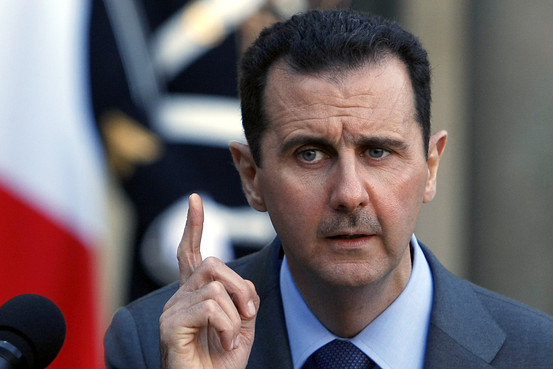
(Photo: Associated Press)
THINK-ISRAEL |

Despite months of negotiations by former United Nations Secretary-General Kofi Annan and extensive Security Council deliberations, hostilities in Syria continue. Although overall violence is down slightly and the council has increased U.N. observers to 300, the civilian death toll continues to rise. Syria’s dictatorship ignores Mr. Annan’s “cease fire,” and Bashar al-Assad himself shows no signs of stepping down.
President Obama seems paralyzed for two basic reasons: First, he is committed to a U.N. process almost certainly doomed to failure; and second, he fears taking on the real nemesis in Syria, namely Iran’s ayatollahs.
The decision to deploy additional military observers was a positive step but the existing observers have hardly displayed much initiative. They have, for instance, declined to monitor anti-Assad demonstrations to avoid, they said, making their mission part of the dispute. One might confuse this with satire were the consequences not so grave.
Perhaps recognizing the U.N.’s lack of real impact to date, Secretary of State Hillary Clinton recently suggested that the Security Council impose an arms embargo against Syria’s government if hostilities continue. It was unclear, however, if other governments would agree. Neither Russia nor China has responded positively. Given their February double veto against stronger sanctions, there is considerable doubt that they would ever allow an effective arms embargo, especially given Russia’s long-standing arms-supplier relationship with Syria.
An enforceable U.N. embargo would require invoking Chapter VII of the U.N. Charter, to restore “international peace and security,” which Moscow and Beijing intensely distrust, particularly after Libya. There, the Security Council acted ostensibly to prevent humanitarian tragedy, and NATO then used the mandate to facilitate ousting Moammar Gadhafi. Russia and China will not repeat that mistake. Moreover, they could insist on a total weapons ban, both to Assad and the opposition. In the U.N. world of moral equivalence, they would almost certainly prevail, as with the 1992 arms embargo when the former Yugoslavia broke up.
Mr. Obama’s real failure is not reliance on the cumbersome, ineffective U.N., but his unwillingness to confront Iran, which is determined to maintain Assad in office. Tehran has long treated Syria as a satellite, part of its regional arc of influence that includes terrorist Hezbollah, now politically and militarily dominant in Lebanon. It is prepared to shed considerable Syrian blood to save Assad. The Islamic Republic has supplied arms and financial assistance to the Assad regime, and Iranian Revolutionary Guards officers are on the ground in Syria aiding government forces.
Mr. Obama knows that if he confronts Iran directly in Syria, any chance will disappear for a negotiated settlement to Iran’s quest for nuclear weapons. While he should have long ago understood that diplomacy will never persuade Iran to renounce its objective of becoming a nuclear power, he has not. So despite Iran’s obvious role (backed by Russia and China) in defending Assad’s brutality, the president cannot bring himself to admit his Iran policy’s futility. And Mr. Obama is entirely unwilling to risk foreign adventures that might imperil his re-election.
Washington needs to acknowledge that effectively challenging Assad means moving beyond sanctions and diplomacy, and toward regime change in Tehran. Mr. Obama seems unable or unwilling to understand that Iran is an enemy of the U.S. and that its nuclear and regional hegemonic ambitions must be thwarted, or the ayatollahs overturned. Such an uncertain leader cannot handle a critical confrontation effectively. Unfortunately, we may have to wait for a more resolute president rather than proceed and fail in Syria with a weak one.
Israel may not be willing to wait for a firm American hand to deal with Iran’s nuclear-weapons program. And if the conflict in Syria is concluded in Assad’s (and Tehran’s) favor, it could well have significant negative implications for Israel, and for peace and security in the Middle East as a whole. That will be the real cost of Mr. Obama’s fruitless deference to the U.N. process, and of his unwillingness to confront Iran’s mullahs.
John Bolton, a senior fellow at the American Enterprise Institute, is the author of “Surrender Is Not an Option: Defending America at the United Nations” (Simon and Schuster, 2007).
He advises Mitt Romney’s presidential campaign.
This article was originally published April 29, 2012 by the Wall Street Journal.
It is archived at
http://online.wsj.com/article/SB10001424052702303916904577373820191499222.html